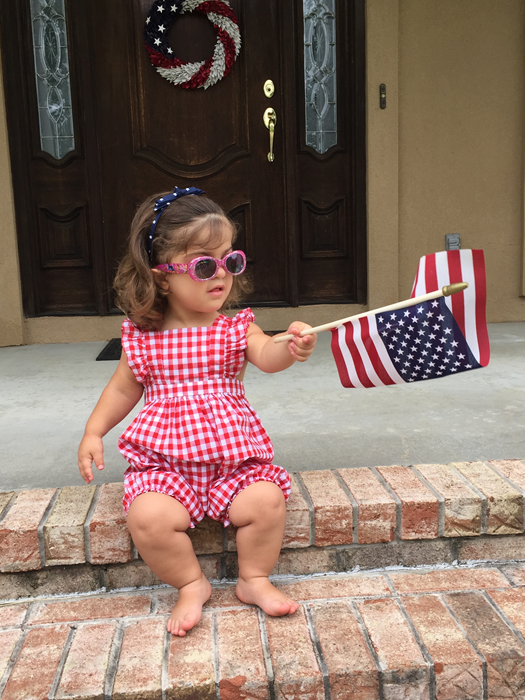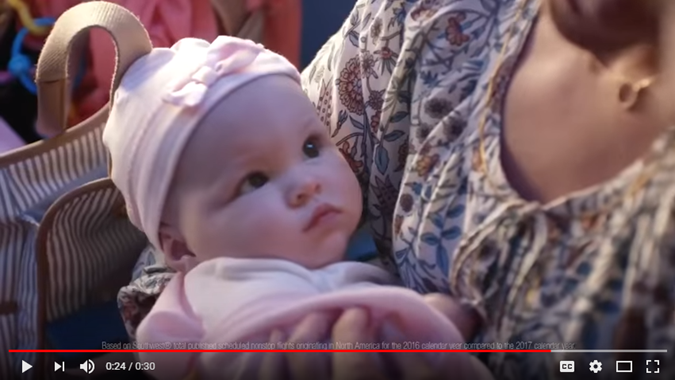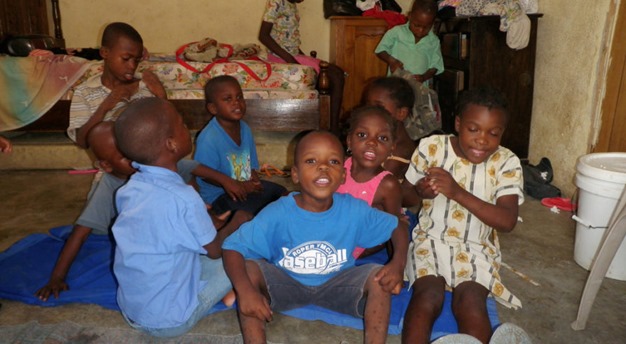Showing posts with label adoption. Show all posts
Showing posts with label adoption. Show all posts
Wednesday, January 24, 2018
Thursday, January 11, 2018
Wednesday, November 15, 2017
Your Opportunity To Impact Adoptive Family Services – Please Take This Survey.

Adoption Support Alliance is a nonprofit organization in Charlotte, North Carolina that was founded to support adoptive families. They are conducting a survey of adoptive parents to learn more about how They can best meet families’ needs. Please take ten minutes (or less) to share your thoughts with them.
Adoption Support Alliance greatly appreciates your time and insights: https://www.surveymonkey.com/r/T7HLNYV (Please share and re-tweet this survey)
Monday, November 13, 2017
Thursday, November 2, 2017
Why the International Adoption Process Needs an Overhaul
Source: http://www.brownpoliticalreview.org
By Alexa Clark
Year-long waits, onerous assessments, and disappointment—prospective adopters in developed countries have a lot to deal with when trying to adopt a child. The scarcity of adoptable children and rigor of the adoption processes in developed countries drive prospective adopters abroad in the hope of finding children to join their families. Due to the prevalence of disease, poverty, and abandonment as well as fledgling social safety nets, less developed countries often have many children in state care that are in pressing need of adoption. In the latter half of the 20th century, many of these countries welcomed international adoption. Under that system, children were matched with more affluent parents who could provide better lives for them than could be expected in the state system, and overcrowded state children’s homes were relieved of the difficulty of caring beyond their capacities.
While international adoption is an ideal solution for both the overcrowding of state childcare systems in developing countries and the difficulties of adopting children in developed ones, it’s currently on the decline. Intercountry adoption fell by 64 percent between 2004 and 2013 in the top 10 adopting countries, indicating a seismic shift away from the practice of adopting children abroad. While modest gains in health and income mean fewer children are orphaned and abandoned, these factors alone do not explain the huge shift away from intercountry adoption. Rather, the decline is the result of an international law that tightens the regulatory barriers to intercountry adoption, decreasing its attractiveness to prospective adopters and increasing negative sentiments towards international adoption in countries where it used to be common.
Continue reading.
By Alexa Clark
Year-long waits, onerous assessments, and disappointment—prospective adopters in developed countries have a lot to deal with when trying to adopt a child. The scarcity of adoptable children and rigor of the adoption processes in developed countries drive prospective adopters abroad in the hope of finding children to join their families. Due to the prevalence of disease, poverty, and abandonment as well as fledgling social safety nets, less developed countries often have many children in state care that are in pressing need of adoption. In the latter half of the 20th century, many of these countries welcomed international adoption. Under that system, children were matched with more affluent parents who could provide better lives for them than could be expected in the state system, and overcrowded state children’s homes were relieved of the difficulty of caring beyond their capacities.
While international adoption is an ideal solution for both the overcrowding of state childcare systems in developing countries and the difficulties of adopting children in developed ones, it’s currently on the decline. Intercountry adoption fell by 64 percent between 2004 and 2013 in the top 10 adopting countries, indicating a seismic shift away from the practice of adopting children abroad. While modest gains in health and income mean fewer children are orphaned and abandoned, these factors alone do not explain the huge shift away from intercountry adoption. Rather, the decline is the result of an international law that tightens the regulatory barriers to intercountry adoption, decreasing its attractiveness to prospective adopters and increasing negative sentiments towards international adoption in countries where it used to be common.
Continue reading.
Monday, October 2, 2017
Supporting Military Families in Adoption, by Laura Beauvais
By Laura Beauvais
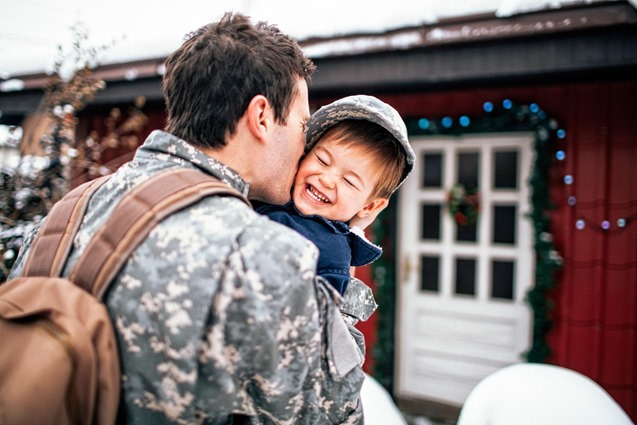
Military families have the potential to be outstanding adoptive families. They often have an incredible support network of friends. Military families tend to be flexible and adaptable and those are qualities that can help make great parents. The installments, where they often live, usually provide no-cost health care, including occupational, physical, and speech therapy, as well as counseling. Dental and vision care are usually provided with a co-pay. Even when military personnel move, the support systems are similar in the next location, so these families do not have to “relearn” what is available at the next location. If an adopted child has serious needs that cannot be met at an installation’s facilities, the military parent cannot be transferred to that installation, as outlined in the Exceptional Family Member Program.
Continue reading.
Friday, September 15, 2017
The Importance of Obtaining Certificates of Citizenship
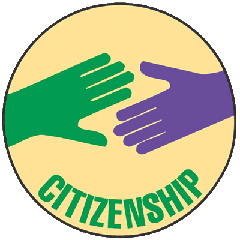 Nobody
enjoys filing paperwork or paying filing fees, and for families that
have completed an international adoption, they often think they have had
more than enough of both. Fortunately, most international adoptions now
result in a certificate of citizenship (COC) being issued without any
additional process or fees. That has not always been the case, and still
is not always so, especially in cases where the child was issued an
IR-4/HR-4 visa. In these situations, the child does not automatically
become a U.S. citizen, and the placement requires finalization here in
the United States.
Nobody
enjoys filing paperwork or paying filing fees, and for families that
have completed an international adoption, they often think they have had
more than enough of both. Fortunately, most international adoptions now
result in a certificate of citizenship (COC) being issued without any
additional process or fees. That has not always been the case, and still
is not always so, especially in cases where the child was issued an
IR-4/HR-4 visa. In these situations, the child does not automatically
become a U.S. citizen, and the placement requires finalization here in
the United States.Obtaining a COC for any child adopted internationally is an important way to definitively establish and demonstrate citizenship. When the cost of COCs was significantly increasing last year, NCFA hosted a webinar led by McLane Layton and Christine Poarch. NCFA also made available a printable factsheet addressing FAQs about certificates of citizenship. These resources continue to be helpful to better understand this issue.
Adoptive families may ask, “Why would I pay for this if I already have proof of citizenship with a U.S. passport or state issued birth certificate?” Although there may be other ways and options to prove citizenship, the Certificate of Citizenship remains the most permanent and definitive way of doing so. Unlike passports, the certificate of citizenship never expires. State issued birth certificates are not always accepted as proof of citizenship, with issues raised if the name has changed or if the birth certificate lists a foreign place of birth.
Adoption professionals who have worked in this field for a number of years strongly advise a family to obtain a COC on behalf of their internationally adopted child. Sue Hollar, the Executive Director & CEO of The Barker Adoption Foundation, is a strong advocate of agencies working to ensure families have obtained COCs. She says, “Adoption agencies and adoptive families have an ethical and moral responsibility to these kids. At Barker, we hold a financial deposit from families and return it upon receiving a copy of the COC… No kid/adult should suffer the consequences of not having the documentation.”
NCFA strongly encourages adoption agencies to obtain copies of the certificate of citizenship as part of their post-adoption reporting. This practice will ensure that families are obtaining their COCs within a reasonable timeframe upon returning, instead of many years later when it may be more difficult for the adoptive family to locate required documentation.
The application for a COC is called the N-600 and can be accessed through USCIS’s website here.
For more family-oriented intercountry adoption resources, visit the Global Adoption section of NCFA’s blog.
Monday, September 4, 2017
The Scariest Special Need of All—Would You Adopt This Child?
Source: https://creatingafamily.org
By Dawn Davenport
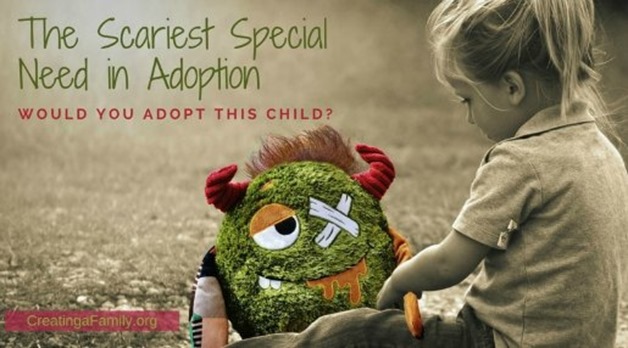
In my experience there is one special need that scares prospective adoptive parents the most. The one where even parents who have a wide range of acceptance for special needs will often say “no”. The special need that is preventing thousands of children from being adopted. That special need is being the victim of sexual abuse. Yes, that special need is actually being the victim of abuse!
Through no fault of their own these children have been sexually abused and are now being victimized again by the near universal fear of raising a child that has been sexually abused. Irony anyone?
I have been told by countless social worker that if the child has a record of sexual abuse in their file or a record of showing the symptoms of having been sexually abused, the chances of finding an adoptive family becomes infinitely harder. This breaks my heart.
Continue reading.
By Dawn Davenport

In my experience there is one special need that scares prospective adoptive parents the most. The one where even parents who have a wide range of acceptance for special needs will often say “no”. The special need that is preventing thousands of children from being adopted. That special need is being the victim of sexual abuse. Yes, that special need is actually being the victim of abuse!
Through no fault of their own these children have been sexually abused and are now being victimized again by the near universal fear of raising a child that has been sexually abused. Irony anyone?
I have been told by countless social worker that if the child has a record of sexual abuse in their file or a record of showing the symptoms of having been sexually abused, the chances of finding an adoptive family becomes infinitely harder. This breaks my heart.
Continue reading.
Friday, August 25, 2017
Education Adoption Information Sheet for Teachers and Parents
Dear Families and Educators,
The national Quality Improvement Center for Adoption and Guardianship Support and Preservation (QIC-AG) has developed a fact sheet about adoption tailored for teachers. These fact sheets are designed to raise awareness about the unique needs of children who have been adopted, and to provide concrete tips on how these professionals can effectively work with these children.
The fact sheets can also be used by adoptive parents as tools for engaging their child’s teachers in understanding the unique needs of their child.
Download Ask About Adoption – Education Fact Sheet (PDF)
For more information contact:
Selena Childs
Clinical Associate Professor
UNC-CH School of Social Work
sbchilds@email.unc.edu
919-843-8144
The national Quality Improvement Center for Adoption and Guardianship Support and Preservation (QIC-AG) has developed a fact sheet about adoption tailored for teachers. These fact sheets are designed to raise awareness about the unique needs of children who have been adopted, and to provide concrete tips on how these professionals can effectively work with these children.
The fact sheets can also be used by adoptive parents as tools for engaging their child’s teachers in understanding the unique needs of their child.
Download Ask About Adoption – Education Fact Sheet (PDF)
For more information contact:
Selena Childs
Clinical Associate Professor
UNC-CH School of Social Work
sbchilds@email.unc.edu
919-843-8144
Wednesday, August 2, 2017
Two Adoptees’ Stories: Two Perspectives on Growing Up Adopted
Source: http://www.rainbowkids.com
By Katie and Jacob
Meet Katie
 My
name is Katelyn, and my family and friends call me Katie. I am a junior
in high school in North Carolina, where I am at the top of my class
academically (with a 4.4 GPA). I am also a competitive gymnast and have
committed to a full Division I scholarship at a wonderful university in
my state. What people don’t know about me is that I was adopted –
adopted from Novosibirsk, Russia.
My
name is Katelyn, and my family and friends call me Katie. I am a junior
in high school in North Carolina, where I am at the top of my class
academically (with a 4.4 GPA). I am also a competitive gymnast and have
committed to a full Division I scholarship at a wonderful university in
my state. What people don’t know about me is that I was adopted –
adopted from Novosibirsk, Russia.
I often wonder, “When people hear that, what do they think of?” Lately I am afraid that too many negative things, worries, and concerns run through people’s minds. I’ve learned that many people, including me, have heard many negative stories about adoption, and not enough success stories.
This is why I am here to share mine.
Continue reading.
By Katie and Jacob
Meet Katie
 My
name is Katelyn, and my family and friends call me Katie. I am a junior
in high school in North Carolina, where I am at the top of my class
academically (with a 4.4 GPA). I am also a competitive gymnast and have
committed to a full Division I scholarship at a wonderful university in
my state. What people don’t know about me is that I was adopted –
adopted from Novosibirsk, Russia.
My
name is Katelyn, and my family and friends call me Katie. I am a junior
in high school in North Carolina, where I am at the top of my class
academically (with a 4.4 GPA). I am also a competitive gymnast and have
committed to a full Division I scholarship at a wonderful university in
my state. What people don’t know about me is that I was adopted –
adopted from Novosibirsk, Russia.I often wonder, “When people hear that, what do they think of?” Lately I am afraid that too many negative things, worries, and concerns run through people’s minds. I’ve learned that many people, including me, have heard many negative stories about adoption, and not enough success stories.
This is why I am here to share mine.
Continue reading.
Wednesday, July 12, 2017
Setting Limits with Adopted Teens-If the Answer is No, Say No
Source: https://creatingafamily.org/
By Dawn Davenport

I’ve noticed a trend in the last several year–parents afraid to discipline their adopted kids or unable to say “no” for fear of damaging their attachment or ego. At times I wonder if we’ve created a monster by all our emphasis on attachment, but I firmly believe that adopted children, actually all children, desperately need us to say no and set limits. Doing so is not in contradiction to creating attachment–in fact, setting limits supports attachment!
I recently read a book that I absolutely loved: Parenting in the Eye of the Storm: The Adoptive Parent’s Guide to Navigating the Teen Years by Katie Naftzger, an adoption therapist and adult adoptee. This book would be the perfect read for all adoptive parents with kids 8+.
I interviewed Ms. Naftzger on a Creating a Family Radio show titled Adoptive Parent’s Guide to Navigating the Teen Years. She was preaching to the choir with me. So much so that I invited her to do this guest blog post.
~~~~~~~~~~~
I just want her to be happy.
If I could make life easier for him, why wouldn’t I do that?
I don’t want him to feel abandoned. How could I say no?
She’s already been through so much!
Do any of these statements sound familiar? For adoptive parents of teens, setting limits is often complicated. Your teen has already been through a lot. At one point in time, their basic needs were probably compromised. Of course, a part of you would want to give them everything they needed and more, but there’s a cost.
Setting limits helps your teen to feel more prepared for young adulthood. It teaches responsibility and helps develop much-needed coping skills. It also helps them to trust you more. They want to know that you’ll do what’s right, even if it means standing up to them.
Here’s a work example:
I was sitting with an adoptive mom and 12 y/o daughter, finishing up our family therapy session. The daughter asked, “Mom, can we go and get a cupcake across the street?”
The mom grimaced. “Oh, sweetie, I don’t know. I don’t want you to be late for gymnastics. There might be a lot of traffic. Plus, you already had ice cream when we got home from school…” Her mom looked around the room and she trailed off.
Her daughter’s voice became shriller. “Mom, we’ll have of time to get there, I promise. I’m not going to be late! Seriously! And, I just had one popsicle after school. Those things are so small! I don’t think that should even count. Come on, Mom, please? Please!”
I said to the mom, quietly, “If the answer is no, just say no.”
At that point, her mom made direct eye contact with her daughter and said, “The answer is no.”
How did the daughter react? She let it go, immediately. And, she was fine. Surprising, isn’t it, given that her daughter was so bent on it just a second ago!
When parenting teens it is important to remember that they don’t have to agree with you. There are certain decisions that are collaborative and others that are solely yours. And, if you’re not sure where to begin, start with the cupcake.
By Dawn Davenport

I’ve noticed a trend in the last several year–parents afraid to discipline their adopted kids or unable to say “no” for fear of damaging their attachment or ego. At times I wonder if we’ve created a monster by all our emphasis on attachment, but I firmly believe that adopted children, actually all children, desperately need us to say no and set limits. Doing so is not in contradiction to creating attachment–in fact, setting limits supports attachment!
I recently read a book that I absolutely loved: Parenting in the Eye of the Storm: The Adoptive Parent’s Guide to Navigating the Teen Years by Katie Naftzger, an adoption therapist and adult adoptee. This book would be the perfect read for all adoptive parents with kids 8+.
I interviewed Ms. Naftzger on a Creating a Family Radio show titled Adoptive Parent’s Guide to Navigating the Teen Years. She was preaching to the choir with me. So much so that I invited her to do this guest blog post.
~~~~~~~~~~~
I just want her to be happy.
If I could make life easier for him, why wouldn’t I do that?
I don’t want him to feel abandoned. How could I say no?
She’s already been through so much!
Do any of these statements sound familiar? For adoptive parents of teens, setting limits is often complicated. Your teen has already been through a lot. At one point in time, their basic needs were probably compromised. Of course, a part of you would want to give them everything they needed and more, but there’s a cost.
Setting limits helps your teen to feel more prepared for young adulthood. It teaches responsibility and helps develop much-needed coping skills. It also helps them to trust you more. They want to know that you’ll do what’s right, even if it means standing up to them.
Here’s a work example:
I was sitting with an adoptive mom and 12 y/o daughter, finishing up our family therapy session. The daughter asked, “Mom, can we go and get a cupcake across the street?”
The mom grimaced. “Oh, sweetie, I don’t know. I don’t want you to be late for gymnastics. There might be a lot of traffic. Plus, you already had ice cream when we got home from school…” Her mom looked around the room and she trailed off.
Her daughter’s voice became shriller. “Mom, we’ll have of time to get there, I promise. I’m not going to be late! Seriously! And, I just had one popsicle after school. Those things are so small! I don’t think that should even count. Come on, Mom, please? Please!”
I said to the mom, quietly, “If the answer is no, just say no.”
At that point, her mom made direct eye contact with her daughter and said, “The answer is no.”
How did the daughter react? She let it go, immediately. And, she was fine. Surprising, isn’t it, given that her daughter was so bent on it just a second ago!
Tips for Setting Limits with Adopted Teens
1. Don’t backtrack or apologize.
Imagine if the mom had said “Oh sweetie, the answer is no…but maybe we can get a cupcake next time we’re here! I’m sorry, sweetie!”
2. Don’t negotiate.
It can be painful for adoptees to feel like they’re begging for something, particularly if they’re struggling with feelings of low self-worth and feelings of abandonment.
3. Don’t send mixed messages.
If the mom had said no but continued to look all around the room, it would have sent mixed messages. Her words would have said no but her body language would have said, I’m not sure.
4. Convey guidelines and consequences ahead of time.
This mom knew her daughter pretty well. She could probably have predicted that her daughter would ask her for a cupcake. The simplest way to go would be to make an overarching decision – always or never.
5. Improve your savvy.
It can be challenging for adoptive parents when their teen gets into stuff that is outside of their experience, such as drugs, alcohol, aggressive behavior, etc. It’s good to learn to think like your teen. When your teen perceives you as naive or oblivious, they tend to lose respect for you. Trust your intuition. If you think something’s going on, it’s usually true. Your aim isn’t to control them. It’s to help them to make informed decisions.
When parenting teens it is important to remember that they don’t have to agree with you. There are certain decisions that are collaborative and others that are solely yours. And, if you’re not sure where to begin, start with the cupcake.
Sunday, July 2, 2017
Deportation a ‘Death Sentence’ to Adoptees After a Lifetime in the U.S. by Choe Sang-Hun
Source: https://www.nytimes.com
By Choe Sang-Hun
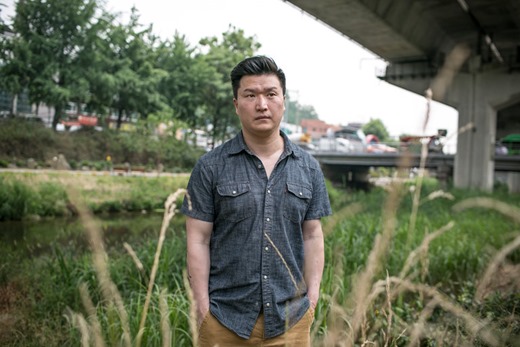
Remember to protect your children’s rights to citizenship if your child was adopted prior to 2000. The consequences are devastating if you have not obtained your child’s US citizenship.
SEOUL, South Korea — Phillip Clay was adopted at 8 into an American family in Philadelphia.
Twenty-nine years later, in 2012, after numerous arrests and a struggle with drug addiction, he was deported back to his birth country, South Korea. He could not speak the local language, did not know a single person and did not receive appropriate care for mental health problems, which included bipolar disorder and alcohol and substance abuse.
On May 21, Mr. Clay ended his life, jumping from the 14th floor of an apartment building north of Seoul. He was 42.
To advocates of the rights of international adoptees, the suicide was a wrenching reminder of a problem the United States urgently needed to address: adoptees from abroad who never obtained American citizenship. The Adoptee Rights Campaign, an advocacy group, estimates that 35,000 adult adoptees in the United States may lack citizenship, which was not granted automatically in the adoption process before 2000.
Mr. Clay is believed to be just one of dozens of people, legally adopted as children into American families, who either have been deported to the birth countries they left decades ago or face deportation after being convicted of crimes as adults. Some did not even know they were not American citizens until they were ordered to leave.
Continue reading.
By Choe Sang-Hun

Remember to protect your children’s rights to citizenship if your child was adopted prior to 2000. The consequences are devastating if you have not obtained your child’s US citizenship.
SEOUL, South Korea — Phillip Clay was adopted at 8 into an American family in Philadelphia.
Twenty-nine years later, in 2012, after numerous arrests and a struggle with drug addiction, he was deported back to his birth country, South Korea. He could not speak the local language, did not know a single person and did not receive appropriate care for mental health problems, which included bipolar disorder and alcohol and substance abuse.
On May 21, Mr. Clay ended his life, jumping from the 14th floor of an apartment building north of Seoul. He was 42.
To advocates of the rights of international adoptees, the suicide was a wrenching reminder of a problem the United States urgently needed to address: adoptees from abroad who never obtained American citizenship. The Adoptee Rights Campaign, an advocacy group, estimates that 35,000 adult adoptees in the United States may lack citizenship, which was not granted automatically in the adoption process before 2000.
Mr. Clay is believed to be just one of dozens of people, legally adopted as children into American families, who either have been deported to the birth countries they left decades ago or face deportation after being convicted of crimes as adults. Some did not even know they were not American citizens until they were ordered to leave.
Continue reading.
Thursday, May 4, 2017
Attention Alabama Families: IAC Presents "Adoption Boot Camp" – June 3rd, 2017
The International Adoption Clinic at Children’s Hospital in
Birmingham (AL) will be hosting a live seminar entitled “Adoption Boot
Camp” on June 3rd, 2017 from 8:30am to 5:00pm in the Bradley Lecture Hall at Children’s Hospital.
The focus of Adoption Boot Camp will be on internationally and domestically adopted children or those children in the foster care setting. Discussed will be the awareness of medical, emotional, and developmental needs to expect once home.
While hosted on the same date, our domestic and international focused seminars are held separately so that the focus is on the specific needs of those families, whether adopting from the U.S. or another country.
Please forward this flyer to any family going through the domestic/foster care or international adoption process OR families already home with their child who you feel would take great benefit from these topics.
The seminar is also opened to professionals within the field of adoption or who would like further education on these topics. CEUs will be available for both social workers and nurses. If you are a professional seeking to attend, please see the flyer noted “for professionals” flyer and pass along to others that will benefit from this educational seminar.
The deadline to register will be: May 20th, 2017
The focus of Adoption Boot Camp will be on internationally and domestically adopted children or those children in the foster care setting. Discussed will be the awareness of medical, emotional, and developmental needs to expect once home.
While hosted on the same date, our domestic and international focused seminars are held separately so that the focus is on the specific needs of those families, whether adopting from the U.S. or another country.
Please forward this flyer to any family going through the domestic/foster care or international adoption process OR families already home with their child who you feel would take great benefit from these topics.
The seminar is also opened to professionals within the field of adoption or who would like further education on these topics. CEUs will be available for both social workers and nurses. If you are a professional seeking to attend, please see the flyer noted “for professionals” flyer and pass along to others that will benefit from this educational seminar.
The deadline to register will be: May 20th, 2017
Wednesday, April 26, 2017
Announcing The New AdoptTogether.org
AdoptTogether has officially partnered with Pure Charity to become:
ADOPTTOGETHER powered by Pure Charity
Their new partnership will be official this Wednesday, April 26.
All of your basic questions & answers about their new partnership is featured below, but feel free to email Sueann@adopttogether.org with any further questions!
We are so EXCITED!
Here's to a brighter future for all AdoptTogether families, and greater strides towards the vision of a world with a family for every child!
Five Changes You May Notice on the New AdoptTogether.org
1. A New Look
AdoptTogether.org is going to look far different than before. Essentially, it will have all the same functionality with an upgraded look and feel to make donating and creating a profile just as easy as before. NOTE: All preexisting family profile information and donation history will automatically be transferred to the new site.
2. A Transition Period
Real talk, whenever a website gets a massive overhaul like the one AdoptTogether has gone through, you can expect the occasional hiccup. Things you may notice could be anything from a broken link, a few grammatical errors, and a slight delay in data being transferred over from the old to the new site. For instance, profile changes and donations made after Friday 4/21 will be reflected on the new site by the end of this week. If you have already received an AdoptTogether Grant, it will appear on your Grant Dashboard within the next two weeks.
3. The Grant Submission Process
AdoptTogether.org now features a Grant Request Portal for families to quickly and easily request their funds raised through AdoptTogether. This process is one of the fundamental services AdoptTogether provides families, and it just got a whole lot more efficient!
4. New Tools For Your Profile
AdoptTogether profiles will now come with a variety of upgraded features, which include an enhanced ability to track your donor activity, view your Grant Request status and history, display a geotag showing the region where you’re adopting from, and upload videos to keep your network informed and engaged with your family's progress!
5. Resources
To aide families in the adoption process, the AdoptTogether team has collected and created over 80 resources full of information about everything from "How to Start the Adoption Process," to "What You Need to Know the First Day Your Child Comes Home." We hope these new resources will be a valuable asset to families for years to come!
If you still have any questions about the new partnership please email Sueann@adopttogether.org.
Cheers!
Hank
CEO & Founder | AdoptTogether
Wednesday, April 12, 2017
"The Day We Met" Adoption Documentary In The Making
Hello Hopscotch Families,
I’d like to introduce you to Patricia Carrascal, an audiovisual producer from Argentina. At the moment Patricia is working on a documentary about adoption from around the world. She is searching for families to share their international adoption stories.
If your family is in the beginning stages of adoption, Patricia would like to record your journey, step by step. Patricia is an adoptive mom and knows it’s a complicated process. Attached you’ll find a flyer with the documentary proposal in more detail.
If your family would like to participate, you can contact Patricia directly at patcarrascal@gmail.com
With encouragement,
Robin
CLICK HERE TO DOWNLOAD THE PDF FLYER.
Wednesday, March 15, 2017
Upcoming NC Trauma Workshop with Kids Group in April!
 This group is open to children who are adopted and their caregivers.
This group is open to children who are adopted and their caregivers. Due to limited space, registration is required.
To register or for more information, please contact Katie Linn at katie.linn@duke.edu or 919-385-0703.
Thursdays, starting April 27 – June 22, 2017 5:30pm-8:00pm
Dinner is provided and then the separate child and parent groups will begin.
Raleigh Vineyard Church
6894 Litchford Rd.
Raleigh, NC 27615
Workshop Sessions Description
What children will get:
This Interactive workshop for children ages 7-17 is part support, part education and designed for children who have been adopted. This workshop will allow children to:
· Connect with other children in adoptive families
· Learn skills and tools to cope with strong feelings
· Build comfort and confidence in talking about adoption both with their family members and others
· Have FUN!
What parents will get:
Parents will participate in the Caring for Children Who Have Experienced Trauma workshop. This workshop gives caregivers the opportunity to:
· Connect with other adoptive parents to share resources
· Learn how a child’s prior experiences can impact their behaviors
· Explore ways to enhance their strengths as a parent
· Share and learn new skills to influence their child’s behaviors and attitudes
Download the PDF flier.
Adoption Notice: Obtaining Citizenship or Documenting Acquired Citizenship for Adopted Children – – March 2017
March 15, 2017
The Office of Children’s Issues has received a high number of inquiries about whether individuals adopted through the intercountry process have acquired U.S. citizenship and how to go about documenting U.S. citizenship, if acquired. Claims to acquisition of citizenship cannot be pre-adjudicated, and the Office of Children’s Issues has no role in the adjudication process. Information is available on the Department of State and U.S. Citizenship and Immigration Services (USCIS) web pages and may be helpful resources.Continue reading.
Monday, March 6, 2017
Adoption Notice – Poland Restructure of International Adoption Process
 Dear Adoption Community,
Dear Adoption Community,Adoption Notice: Poland – Restructure of international adoption process on March 6, 2017
“The Government of Poland is revising its policies on intercountry adoptions under the Hague Adoption Convention. Poland has indicated its intent to prioritize domestic adoptions, except in the case of intercountry adoptions of siblings related to children already adopted through intercountry adoption, intrafamily adoptions, and adoptions by Polish citizens living abroad. It is unclear how these intended changes will impact intercountry adoptions from Poland sought by U.S. citizen families that are already in process, but in cases in which referrals have not yet been received, parents may see extended delays. The actual impact and form of these changes is still to be determined, and we will continue to update this page as more information becomes available.”
Friday, March 3, 2017
Adoption Notice – Adoptions from Ghana after March 2, 2017
On January 1, 2017, the Hague Convention on Protection of Children and Co-Operation in Respect of Intercountry Adoption (Convention)
entered into force for Ghana. After reviewing Ghana’s Amended
Children’s Act of 2016, and confirming the establishment of Ghana’s
Central Authority, the United States has determined that it will now be
able to issue Hague Adoption Certificates for adoptions from Ghana.
Consular officers will verify on a case-by-case basis that an
intercountry adoption can proceed in accordance with the Convention, as
well as with U.S. laws and U.S. obligations.
The Department of State cautions U.S. prospective adoptive parents that there may be delays in the adoption process while Ghana works to implement its new adoption laws, regulations, and procedures. Prospective adoptive parents initiating an intercountry adoption on or after January 1, 2017, should work closely with their U.S. accredited adoption service provider (ASP) to ensure they complete all necessary steps under Ghana’s adoption process in accordance with Ghanaian and U.S. laws.
Continue reading.
The Department of State cautions U.S. prospective adoptive parents that there may be delays in the adoption process while Ghana works to implement its new adoption laws, regulations, and procedures. Prospective adoptive parents initiating an intercountry adoption on or after January 1, 2017, should work closely with their U.S. accredited adoption service provider (ASP) to ensure they complete all necessary steps under Ghana’s adoption process in accordance with Ghanaian and U.S. laws.
Continue reading.
Sunday, February 5, 2017
Talking to Adopted Children About Birth Parents and Families of Origin: How to Answer the “Hard Questions” by Rhonda Jarema, MA
Source: http://www.adoptioncouncil.org/
By Rhonda Jarema
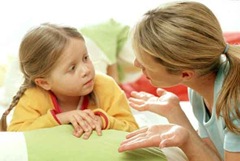 Over
the years, I’ve had a number of parents question me about what they
should say to their child when that child asks about his or her
biological parents. Adoptive families may have been provided with
varying amounts of information, from an extensive background that
includes APGAR scores to just a birthdate. Sometimes there is a vague
family history, or the child might even have some memories of their
birth family if placed as an older child. Most families have something
in between: usually a very basic history of parental death, abandonment,
voluntary placement, or removal from parental care. This leaves a hole
that is often difficult for both child and parents, as they attempt to
fill in the blanks from the past.
Over
the years, I’ve had a number of parents question me about what they
should say to their child when that child asks about his or her
biological parents. Adoptive families may have been provided with
varying amounts of information, from an extensive background that
includes APGAR scores to just a birthdate. Sometimes there is a vague
family history, or the child might even have some memories of their
birth family if placed as an older child. Most families have something
in between: usually a very basic history of parental death, abandonment,
voluntary placement, or removal from parental care. This leaves a hole
that is often difficult for both child and parents, as they attempt to
fill in the blanks from the past.
It is the responsibility of adoption professionals to try to guide the parents in this area. Adoptive parents often expect that professionals have some hidden store of information that was not provided with the referral, or that the information expanded while in the file and will provide the magical answers to their child’s questions. Sometimes parents become anxious when they receive questions from their child about their past prior to adoption. It is important for parents to give information appropriate to the child’s level of development; offering all the specifics at a young age may increase anxiety for all involved.
Just as it is important to share the information the parent has on the child’s family, so it is important not to fill in blanks when the answer really isn’t known. Sometimes the adoptive parent may not have any information, and the answer might be “I’m sorry, but I don’t know.” Another option would be to ask the child, “What do you think?” As a parent, these are not always easy discussions, but they are important to have.
Continue reading.
By Rhonda Jarema
Introduction
 Over
the years, I’ve had a number of parents question me about what they
should say to their child when that child asks about his or her
biological parents. Adoptive families may have been provided with
varying amounts of information, from an extensive background that
includes APGAR scores to just a birthdate. Sometimes there is a vague
family history, or the child might even have some memories of their
birth family if placed as an older child. Most families have something
in between: usually a very basic history of parental death, abandonment,
voluntary placement, or removal from parental care. This leaves a hole
that is often difficult for both child and parents, as they attempt to
fill in the blanks from the past.
Over
the years, I’ve had a number of parents question me about what they
should say to their child when that child asks about his or her
biological parents. Adoptive families may have been provided with
varying amounts of information, from an extensive background that
includes APGAR scores to just a birthdate. Sometimes there is a vague
family history, or the child might even have some memories of their
birth family if placed as an older child. Most families have something
in between: usually a very basic history of parental death, abandonment,
voluntary placement, or removal from parental care. This leaves a hole
that is often difficult for both child and parents, as they attempt to
fill in the blanks from the past.It is the responsibility of adoption professionals to try to guide the parents in this area. Adoptive parents often expect that professionals have some hidden store of information that was not provided with the referral, or that the information expanded while in the file and will provide the magical answers to their child’s questions. Sometimes parents become anxious when they receive questions from their child about their past prior to adoption. It is important for parents to give information appropriate to the child’s level of development; offering all the specifics at a young age may increase anxiety for all involved.
Just as it is important to share the information the parent has on the child’s family, so it is important not to fill in blanks when the answer really isn’t known. Sometimes the adoptive parent may not have any information, and the answer might be “I’m sorry, but I don’t know.” Another option would be to ask the child, “What do you think?” As a parent, these are not always easy discussions, but they are important to have.
Continue reading.
Subscribe to:
Posts (Atom)
